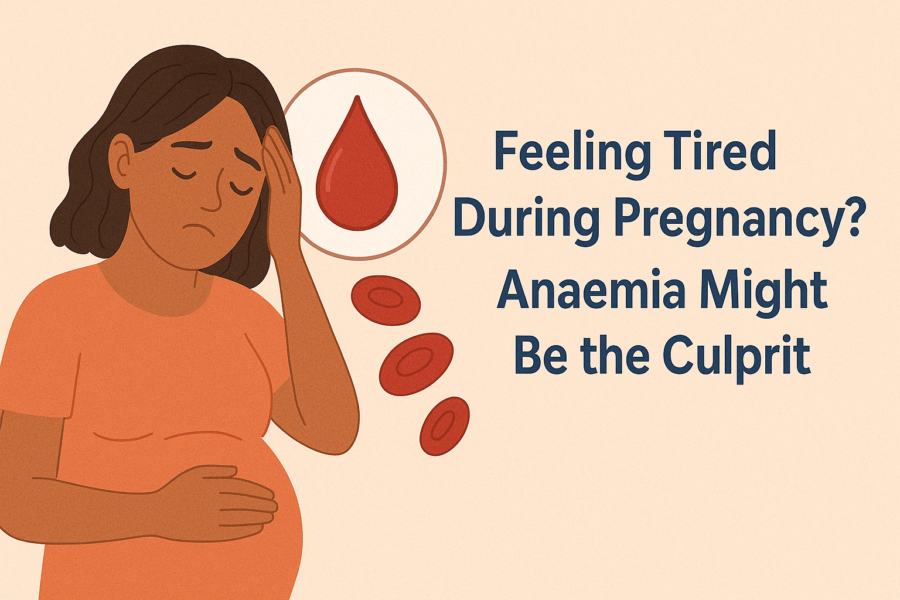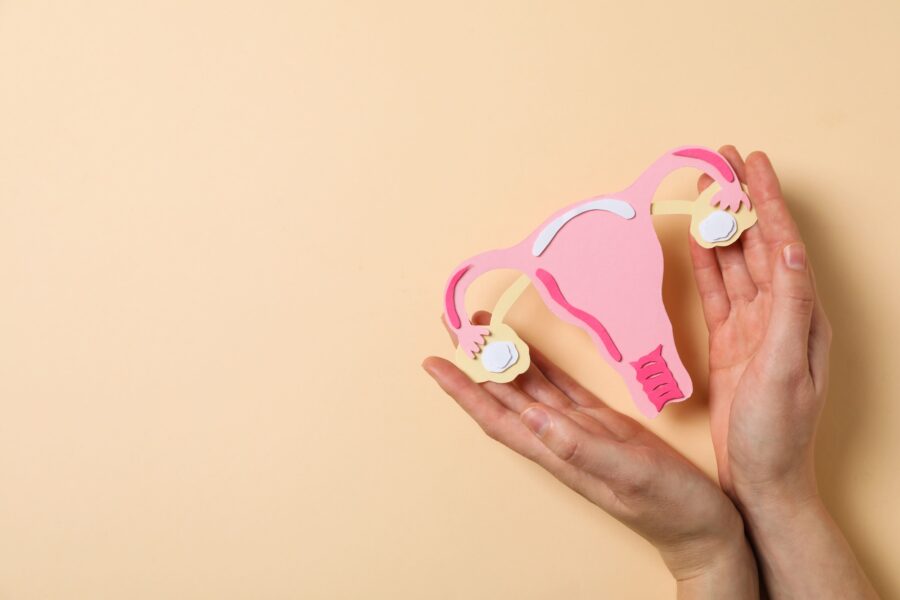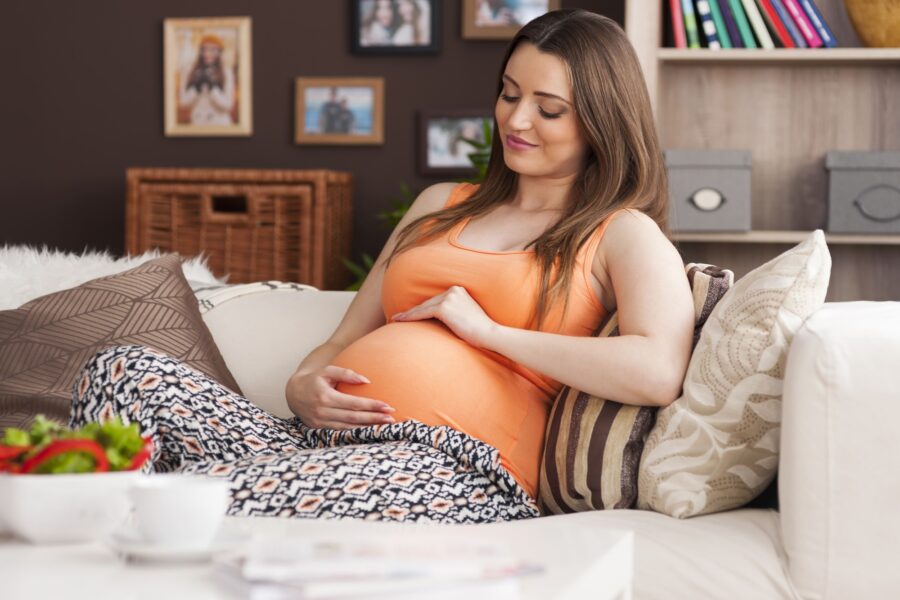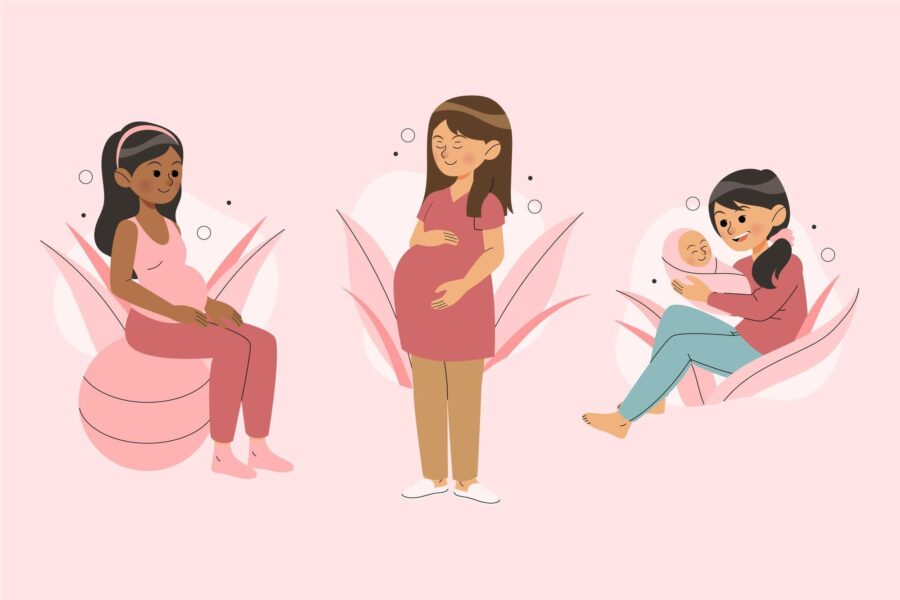Hiccups in a new baby are a common occurrence and usually nothing to worry about. They
can be quite cute and even a little funny to watch, but sometimes they can be disruptive to
your little one’s sleep or feeding. Here’s what you need to know about new baby hiccups:
Why Do Newborns Get Hiccups?
Just like adults, hiccups in babies happen when the diaphragm, the muscle that separates the
chest from the abdomen and plays a vital role in breathing, contracts involuntarily. This
sudden contraction causes the vocal cords to close briefly, creating the characteristic “hic”
sound.
The exact reasons why babies get hiccups are not fully understood, but several factors are
commonly associated with them:
Overfeeding: When a baby drinks too much milk too quickly, the stomach can expand
rapidly, leading to hiccups. This is more common in bottle-fed babies, as they may not have
as much control over the flow of milk as breastfed babies.
Swallowing Air: Babies can swallow air while feeding, especially if they are bottle-fed or if
they are breastfeeding and not latched on properly. This can lead to hiccups as the air gets
trapped in the stomach and diaphragm.
Temperature Changes: Sudden changes in temperature, such as moving from a warm room
to a cooler one, can cause hiccups. This is because the sudden change in temperature can
cause the diaphragm to contract involuntarily.
Gastroesophageal Reflux (GERD): Some babies may experience reflux, where stomach
acid flows back into the oesophagus. This can irritate the diaphragm and lead to hiccups.
Nervous System Development: The baby’s nervous system is still developing, and hiccups
may be a result of this process. As the nervous system matures, hiccups should become less
frequent.
Tips for Managing Newborn Hiccups
Burp Your Baby: If your baby is bottle-fed, try burping them after every ounce or two of
milk to prevent them from swallowing air. Burping can also help relieve any trapped air in
the stomach that may be causing hiccups.
Feed Slowly: If you are breastfeeding, try to feed your baby slowly to prevent them from
overeating. This can help prevent hiccups caused by overfeeding.
Keep Your Baby Upright: After feeding, keep your baby upright for at least 30 minutes to
help prevent reflux. This can also help prevent hiccups caused by swallowing air.
Avoid Overstimulation: Try to keep your baby calm and avoid overstimulating them, as this
can also trigger hiccups. This includes avoiding sudden movements or loud noises.
Use a Pacifier: Some babies find comfort in sucking on a pacifier, which can help relax their
diaphragm and stop hiccups. However, be cautious with pacifiers, as they can also cause
hiccups if the baby is sucking too vigorously.
When to Seek Help?
Persistent Hiccups: If your baby’s hiccups last for more than a few minutes or occur
frequently throughout the day, it may be a sign of an underlying issue. It’s important to
consult with a healthcare provider to rule out any potential problems.
Difficulty Breathing: If your baby is having trouble breathing or is turning blue, seek
medical attention immediately. This could be a sign of a more serious issue, such as a
respiratory infection or a blockage in the airway.
Vomiting: If your baby is vomiting or spitting up excessively, it may be a sign of reflux or
another issue. This can also lead to hiccups, so it’s important to monitor your baby’s feeding
and digestion habits.
Fever: If your baby has a fever along with hiccups, it may be a sign of an infection. It’s
important to monitor your baby’s temperature and seek medical attention if it exceeds
100.4°F (38°C).
While hiccups in newborns are generally harmless and will resolve on their
own, it’s important to understand the causes, tips for managing them, and when to seek help
to ensure your baby’s health and well-being. If you have any concerns about your baby’s
hiccups or overall health, don’t hesitate to consult with a healthcare provider.






